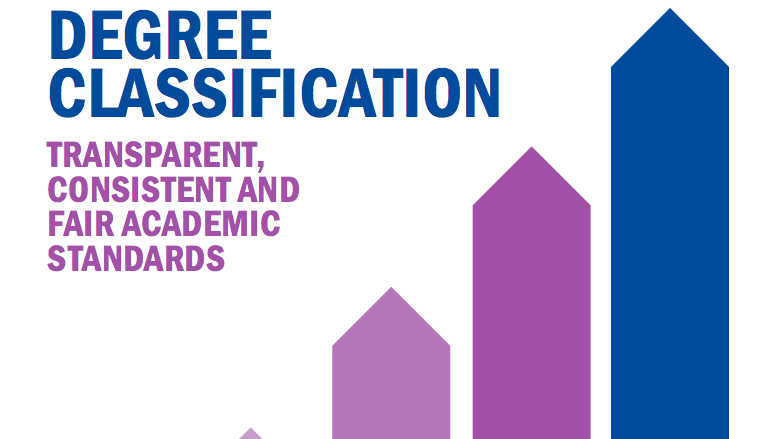A
new report by Universities UK (UUK), GuildHE and QAA, the Quality Assurance Agency for Higher Education, on behalf of the UK Standing Committee for Quality Assessment (UKSCQA) looked at the reasons behind the increase in the number of graduates receiving first and upper-second class degrees.
The report,
Degree Classification: Transparent, Consistent and Fair Academic Standards, finds that a wide range of factors could be driving the increase in upper degrees, including additional investment in teaching and learning and heightened student motivation. However, there is a risk that a continued increase in the number of top degrees may undermine confidence in the value of a degree from a UK university, making the classification system less useful for employers and students. An accompanying technical report,
The Drivers of Degree Classifications, has also been released.
Universities are committed to ensuring that value of qualifications and maintaining public confidence in the results students receive. Therefore, the report recommends that universities should issue a sector-wide statement of intent, leading to actions to protect the value of qualifications over time. This includes commitments such as:
- Reviewing and publishing evidence on their degree outcomes at the institutional level – the skills and knowledge demonstrated by graduates at every grade with external assurance of the data – in a statement. This should enable a university’s governing body to ensure the university is protecting the value of its qualifications;
- Agreeing common criteria, to be used by all universities, to describe the quality of work required for each degree classification;
- Publishing and explaining scoring systems and processes that universities follow to determine a student’s final degree classification in an accessible format, including why any practice differs from accepted norms.
Today, the UKSCQA is launching a UK-wide
consultation to gain feedback on how the recommendations in the report can be developed and implemented by the higher education sector in order to protect the value of qualifications over time. The consultation, run by QAA on behalf of the UKSCQA, invites respondents to consider these recommendations in line with national regulatory contexts, how they might be taken forward, and what further action might need to be taken.
QAA will be hosting consultation workshops throughout January 2019. Responses should be made through the online portal by February 2019.
Professor Andrew Wathey, Vice-Chancellor of the University of Northumbria and Chair of the UK Standing Committee for Quality Assessment, said:
“This report shows that there is a clear need for the higher education sector to take action to grip the issue of grade inflation, and to demonstrate its ability to maintain the value of a UK qualification. The UKSCQA welcomes feedback throughout the consultation period from all those who have an interest in ensuring that we can have confidence in the standard of a UK degree.”
The main report can be read
here, the technical report
here, and the consultation can be found
here.

